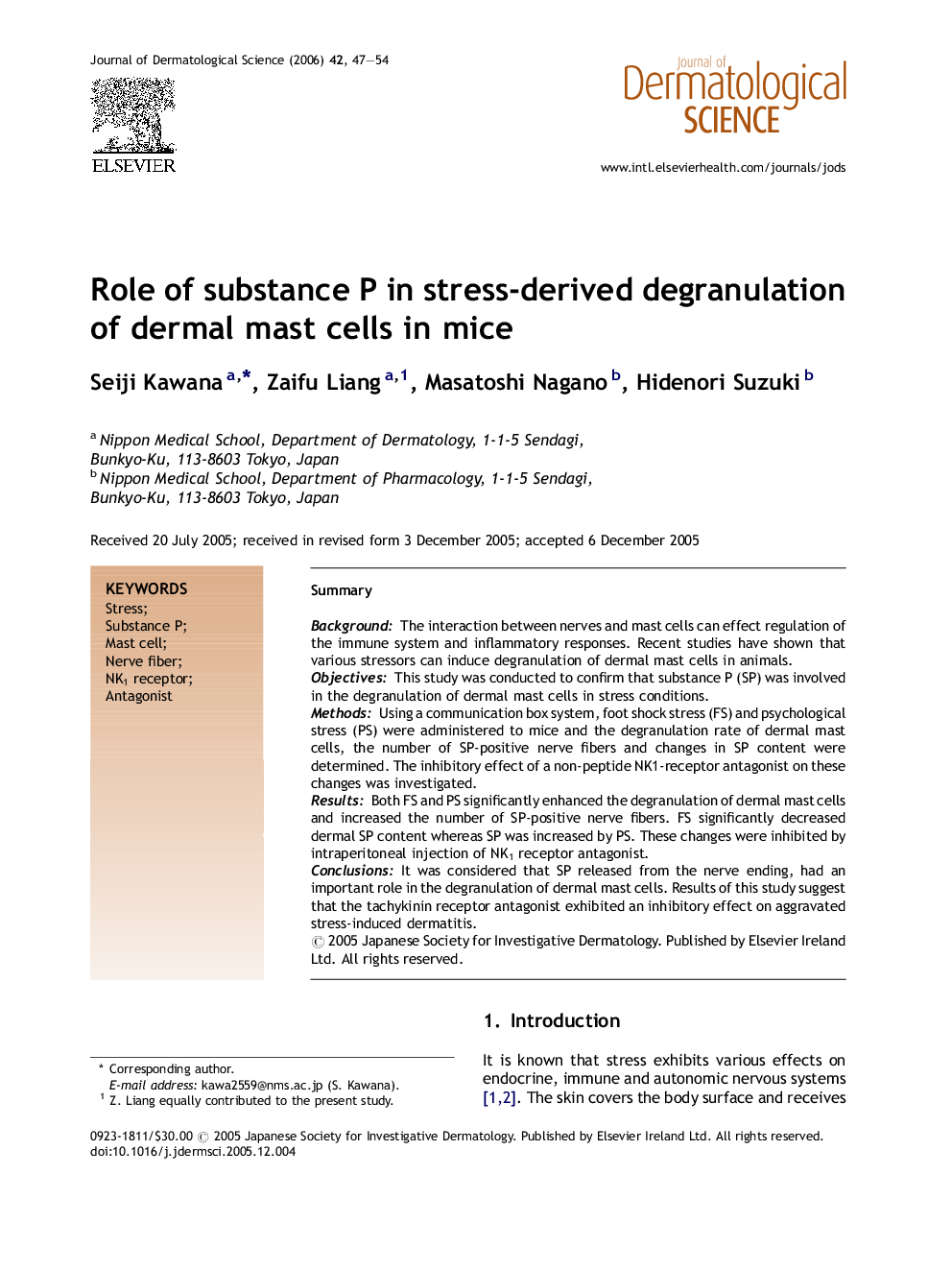| Article ID | Journal | Published Year | Pages | File Type |
|---|---|---|---|---|
| 3214603 | Journal of Dermatological Science | 2006 | 8 Pages |
SummaryBackgroundThe interaction between nerves and mast cells can effect regulation of the immune system and inflammatory responses. Recent studies have shown that various stressors can induce degranulation of dermal mast cells in animals.ObjectivesThis study was conducted to confirm that substance P (SP) was involved in the degranulation of dermal mast cells in stress conditions.MethodsUsing a communication box system, foot shock stress (FS) and psychological stress (PS) were administered to mice and the degranulation rate of dermal mast cells, the number of SP-positive nerve fibers and changes in SP content were determined. The inhibitory effect of a non-peptide NK1-receptor antagonist on these changes was investigated.ResultsBoth FS and PS significantly enhanced the degranulation of dermal mast cells and increased the number of SP-positive nerve fibers. FS significantly decreased dermal SP content whereas SP was increased by PS. These changes were inhibited by intraperitoneal injection of NK1 receptor antagonist.ConclusionsIt was considered that SP released from the nerve ending, had an important role in the degranulation of dermal mast cells. Results of this study suggest that the tachykinin receptor antagonist exhibited an inhibitory effect on aggravated stress-induced dermatitis.
